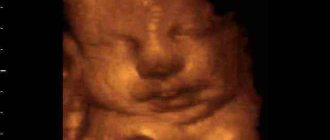- A healthy appetite appears. Symptoms of early toxicosis, which in some people begins immediately after fertilization, disappear. Mommy's menu is expanding significantly. You need to be selective in choosing foods and plan your diet based on the healthfulness of the foods you eat.
- Rapid weight gain begins. It is not difficult to guess that this is a consequence of improved appetite. If in the first trimester a woman most often notices weight loss due to toxicosis, now the body begins to catch up. The increase can be up to 3 kg from the moment the child is conceived. At the 16th week of pregnancy, the belly protrudes noticeably, and it is already difficult to hide your interesting position from others.
- Frequent visits to the toilet resume. This is due to the fact that the fetus continues to grow at the 16th week of pregnancy. Along with the child, the uterus also grows, which puts pressure on the bladder, forcing the woman to look into the restroom more often.
- Shortness of breath due to the pressure of the uterus on the diaphragm. It is recommended to remain calm, get plenty of rest and monitor your condition.
- A so-called physiological runny nose occurs, characteristic of pregnancy. This is a temporary symptom that goes away over time.
- The baby's first movements are felt. The sensations in the abdomen are still light and barely perceptible, but every week they intensify, and the woman has the opportunity to communicate with the baby using gentle internal touches.
You may experience problems with bowel movements (constipation). This is another reason to be careful about your diet, choosing foods that contain fiber and vitamins.
Interesting Facts
| Options | Indications |
| Time from conception | 14 weeks |
| Period by month | 16 weeks |
| What month | 4 |
| Dimensions and weight of the fetus | 130-150 mm, 70-90 g |
| Uterus dimensions | Halfway between the womb and the navel |
| Pregnant weight | Gain 400-500 g in 1-2 weeks |
Your baby is the size of
Avocado
130-150mm Size
70-90 g Weight
The sixteenth week of pregnancy is a time of relative calm, as you have left behind the gestational months when major hormonal changes were occurring and you were probably feeling unwell. In the second trimester, the mother can enjoy her condition, and the baby continues to grow confidently.
We will find out how the fetus develops and what the woman’s feelings are during this period, but first we will decide on the calculations.
Recommendations
- For the 16th week of pregnancy, the recommendations remain the same. Now it is important for you to monitor your weight gain. And to avoid obesity, it is necessary to exclude “fast” carbohydrates (baked goods, cakes, chocolate, candies) from the diet. Extra pounds can lead to complications and negatively affect the birth process. When you are already 16 weeks pregnant, eat right: don’t skip breakfast, choose nuts, fruits, biscuits, and natural sugar-free yoghurts as snacks. And at night you can drink herbal tea with honey or a glass of kefir;
- Some pregnant women are interested in the question of whether it is possible to visit a bathhouse or sauna during the 15th – 16th week of pregnancy. You should not do this: like a hot bath or shower, bath procedures can harm the baby, because if your body temperature rises even for a few minutes, great damage will be caused to the baby’s body.
What happens to the expectant mother
At week 16, a woman usually feels very well: her mood improves, her appetite increases, and her sleep returns to normal. The belly is noticeably rounded, and it is no longer possible to hide its position from others. Some may feel the first movements of the baby, especially if this is not the first pregnancy.
Uterine changes
Now it is already quite large, located 7-8 cm below the navel. This distance is measured by the gynecologist during your routine visit. It allows you to assess the correspondence of the pace of development to the gestation period.
Sometimes at 16 weeks a pregnant woman may complain that her stomach feels like it is turning to stone. This sensation is associated with the tone of the uterus. It can be physiological: it occurs after exercise or stress, disappears after rest and relaxation. But if the tone is prolonged and is accompanied by bloody discharge, treatment in a hospital is necessary.
Skin condition
Pigment spots often occur during pregnancy due to hormonal changes. There is no point in worrying or fighting them: they will disappear on their own after childbirth.
As your belly grows, you will begin to notice the skin in this area itching. This is also normal. Use moisturizing oils or creams to combat this feeling.
Digestion
A common problem at week 16 is heartburn, constipation, and increased gas formation. These unpleasant symptoms are associated with pressure from the growing uterus on the internal organs. Eat small meals, check with your doctor about what medications you can take to alleviate such conditions.
What does a baby look like at 16 weeks of pregnancy?
By the 16th week, the proportions of the body gradually change: the legs of the fetus lengthen and become longer than the arms, the head is no longer so large in relation to the body. The bones become stronger, the fetal spine becomes more and more straight. If the ears were previously located closer to the neck, then at week 16 they take their natural position.
The baby's height is about 13-15 cm, weight is 70-90 grams. The grasping reflex is clearly expressed: an arm, a leg, an umbilical cord - the skill is honed on everything that is nearby. Movements become less chaotic. The baby knows how to frown and smile, suck a finger, and turn his head.
Fetus. Development at 16 weeks
Fetal development at 16 weeks of pregnancy
At the 16th obstetric week of pregnancy, the fetus continues to grow: it can be from 12 to 16 cm long, weighing from 75 to 115 g.
To visualize its size, you can imagine an avocado.
At the current stage, the body of the unborn baby continues to acquire proportionality.
The legs have already become longer than the arms and continue to actively grow.
The head, compared to the limbs, grows more slowly, although it looks large.
The face is almost completely formed, on it, in its place, are located:
- ears;
- brows;
- eyes;
- nose;
- mouth;
- cheeks;
- chin.
If you look at the fetus at this time, you can note the characteristic features with which it will be born.
The nervous system continues to improve.
Several thousand new neurons are formed in the brain every minute.
All sections are clearly visible, the cerebral cortex continues to form.
Grooves actively appear over the entire area of the hemispheres, gradually transforming into convolutions.
The central and peripheral nervous systems control already functioning life-supporting organs and can influence them if necessary.
At the 16th week the baby works:
- liver;
- kidneys;
- bladder;
- stomach;
- intestines;
- gallbladder;
- the cardiovascular system;
- Bone marrow;
- main glands (pituitary gland, thyroid gland, etc.).
The first important reflexes have formed.
The fetus can already:
- thumb sucking;
- shudder;
- stretch;
- to yawn;
- to fart;
- clench your fists;
- play with arms and legs;
- swallow amniotic fluid;
- push the leg away from the walls of the uterus.
The pregnancy has not even reached the middle, and the future baby already has many working organs and systems.
At the 16th obstetric week, the process of replacing cartilage tissue with bone continues in the musculoskeletal system.
The fetus takes the required amount of calcium from the mother's body.
To avoid deterioration of the condition of teeth, hair, and nails, a pregnant woman needs to control sufficient intake of calcium, magnesium, and vitamin D into the body.
It is recommended to consume dairy products, fish, chicken eggs, buckwheat porridge and rice. To get enough vitamin D, it is advisable to walk outside for at least 30 minutes every day.
During the cold season, you can discuss with your gynecologist the possibility of taking vitamin D in the form of drops or a multivitamin complex.
At the 16th obstetric week of pregnancy, the fetus continues to form ribs: protecting the most important systems from external influences.
Sharp and long nails are clearly visible, in which calcium gradually accumulates, making them stronger.
Changes also occur in the circulatory system.
At the current stage, the fetal blood already contains enough red blood cells, leukocytes, and lymphocytes to provide the body with oxygen and nutrients and protect against infections. Hemoglobin begins to be synthesized.
The muscles continue to actively develop around the bones.
At the 16th week, the muscles of the fetal neck are most actively strengthened, allowing him to move his head and hold it straight.
The baby has not yet opened his eyes and does not see what is happening around, but he can already turn his head towards the sound.
At the current stage, the eyes, closed by eyelids, begin to move. The eyeballs move actively when you shine a bright light on the stomach.
The formation of the reproductive system continues.
External organs are formed in future boys and girls. In girls, the fallopian tubes, vagina, and uterus are actively developing.
Important! The sexual development of boys has a peculiarity.
If girls are born with fully formed genitals, then for boys it is a little different.
Before birth, the testicles do not descend into the scrotum; they are located in the abdominal cavity. Their descent must be monitored after birth.
Tests and ultrasound
The period from 16 to 20 weeks of pregnancy is the optimal time for 2 screenings. It includes an ultrasound and a biochemical blood test for the hormones estriol, hCG, alphafetoprotein - a triple test. The study allows us to determine:
- compliance of fetal development with norms;
- genetic disorders;
- abnormalities in the structure of the heart, brain and spinal cord, kidneys.
During an ultrasound, a specialist evaluates blood flow in the heart and large vessels, the location of the placenta and umbilical cord, and the volume of amniotic fluid. Also, at this stage it is already possible to find out the sex of the unborn child if he does not hide from the sensor.
Medical observation
At the 16th week of pregnancy, in addition to a general blood and urine test, you may have to donate blood for a coagulogram (to determine its coagulation), free estriol, AFP and hCG. With diseases such as Down syndrome, cranial hernia and anencephaly, the level of these substances will deviate from the norm.
Usually an ultrasound is not performed at 16 weeks of pregnancy, but if one is prescribed, the expectant mother will be able to observe on the monitor not only the movements of her baby, but also his facial expressions. This time, using a regular ultrasound machine, you can determine the sex of the child, if, of course, your baby turns the right way.
In some cases, amniocentesis is prescribed at the 16th week of pregnancy. For this test, a puncture is made in the amniotic sac and a small amount of amniotic fluid is removed using a needle. A diagnostic test allows you to determine with almost absolute certainty whether the fetus has a particular pathology. This study can identify several hundred genetic defects. But this procedure is unsafe: according to statistics, infection occurs in one case out of a thousand, and the risk of miscarriage as a result of amniocentesis is approximately 0.5 - 1%. Therefore, unless absolutely necessary, it is better not to puncture the amniotic membrane at the 15th - 16th week of pregnancy.
Possible negative feelings
The 16th obstetric week of pregnancy is the time when the risk of developing any complications is minimal. However, painful sensations can overshadow a woman’s condition:
In the lower back
Caused by wearing high-heeled shoes and a shift in the center of gravity due to a growing belly. Choose comfortable shoes and take frequent breaks from work. Massage will also help, as well as exercises to strengthen the back muscles.
Lower belly
Short-term pain in this area is natural during pregnancy. The ligamentous apparatus that holds the uterus is stretched. This gives rise to unpleasant sensations. Rest and taking antispasmodics help to cope with them.
Severe sharp pain is a reason to immediately seek medical help. They can be a symptom of threatened miscarriage, isthmic-cervical insufficiency, fetal freezing, placental abruption.
What month of pregnancy
The end of the sixteenth obstetric week corresponds to the end of the fourth obstetric month of pregnancy. Let us recall that in an obstetric month there are 28 days, that is, exactly four weeks, while in a calendar month there are 30 or 31 days. If you count by calendar months, then the end of the sixteenth week corresponds to the third week of the fourth calendar month of pregnancy.
Sex
If the pregnancy progresses well, doctors do not place restrictions on women’s intimate life. Sex at this stage is not a contraindication if there are no negative symptoms. A gynecologist can impose a ban only in cases such as multiple pregnancies, low placental attachment, and the likelihood of miscarriage.
Pregnant lifestyle
By week 16, you have most likely already adjusted your diet and physical activity so that your baby grows and develops correctly, and your body does not experience unnecessary stress.
Now you can and should spend a lot of time in nature, walking, traveling, doing cosmetic procedures, having sex. Of course, alcohol and smoking, including passive smoking, are excluded.
How to sleep properly during pregnancy?
On the stomach - excluded: dangerous and uncomfortable. It is also not recommended on the back, since in this position the growing uterus compresses the large vena cava, through which blood runs from the lower third of the body to the heart. In this case, the fetus will begin to experience oxygen starvation, not receiving enough oxygen from the blood. At a later stage, you will even be able to feel this by the active and restless movements of the baby in the stomach.
Therefore, it is best to sleep on your left side. This position maintains good blood flow to the uterus and other organs.
Mother. Changes in the body's condition at 16 weeks

Mother's condition at 16 weeks of pregnancy
At the 16th obstetric week of pregnancy, the woman feels well.
Most expectant mothers experience some unpleasant sensations, but they no longer put them out of their mind and allow them to do what they love, have fun and travel.
Among the most common symptoms and signs of term, at the 16th obstetric week of pregnancy the most questions arise:
- increased appetite and difficulty controlling weight gain.
Many women note that the desire to eat is constantly present and it is very difficult to maintain the established weight gain.
Paying attention to the frequency of meals and selecting foods allows you to avoid overdoing it with food.
It is advisable to eat 5-6 times a day, in small portions. The basis of the diet should be foods with low calorie content: fresh vegetables and fruits, dietary meat (poultry), dried fruits.
It is advisable not to mix several dishes into one meal, and control your drinking regime: drink about 2.5 liters of liquid per day.
- return of frequent urination.
At 16 weeks of pregnancy, the uterus has grown to a size where it begins to put pressure on the bladder again.
The frequency of urges increases, but for now the woman is forced to visit the toilet not as often as in the first trimester;
- a feeling of constriction in the lungs, shortness of breath.
The uterus enlarges in all directions, and at the current stage the pressure is felt by the lungs.
The woman feels like she doesn’t have enough oxygen and her chest can’t expand enough.
This sign of term will be present in the pregnant woman until the last weeks.
To avoid a lack of oxygen, weakness and dizziness, it is necessary to walk outside every day, monitor the sufficient intake of iron in the body (liver, offal, pomegranates), and promptly take tests to measure hemoglobin levels.
- persistent runny nose and feeling of nasal congestion.
By the 16th week of pregnancy, the amount of blood in a woman’s body increases significantly.
As a result, the vessels passing near the nose expand, reducing air flow.
If a woman has only mild congestion, there is no need to worry. But if you experience snoring or lack of free breathing through your nose, you should consult a gynecologist.
- Difficulties in the functioning of the gastrointestinal tract.
Heartburn, flatulence, constipation are frequent companions of pregnancy.
At the 16th week, retention of stool for more than a day is unacceptable. If these symptoms appear, consultation with a gynecologist is necessary.
Prunes and dried apricots and maintaining a drinking regime can help ease bowel movements.
- the appearance of a clear venous pattern and small tubercles (Montgomery tubercles) on the chest.
A venous pattern on the chest is a normal phenomenon during pregnancy and lactation, indicating an increase in the amount of blood flowing to it.
Montgomery tubercles are a rudimentary formation that does not appear in all women.
If they do not cause discomfort or become inflamed, then there is nothing to worry about;
- the appearance of carpal tunnel syndrome.
Numbness, pain, tingling in the hands, spontaneous unclenching of the fingers may be present during the current stage of pregnancy.
This is usually accompanied by the appearance of swelling on the body.
The accumulation of excess fluid puts pressure on the median nerve and causes these unpleasant sensations.
To reduce the occurrence of carpal tunnel syndrome, it is necessary to identify what type of work causes it and minimize such activities.
If pain in your arms prevents you from sleeping and performing simple actions, you need to consult a gynecologist.
- itching of the abdomen, feet, palms.
Usually this symptom appears at night, preventing the expectant mother from sleeping.
Quite often, the cause of this phenomenon is stagnation of bile in the body due to violation of nutritional rules (eating fried, smoked, highly seasoned), but sometimes also due to improper functioning of the liver.
If severe itching occurs, it is necessary to consult a gynecologist and conduct tests for the level of bilirubin and liver enzymes.
- swelling of fingers, ankles, face, feet.
Edema is the accumulation of excess fluid in the body.
This phenomenon occurs quite often during pregnancy, but it is important to pay enough attention to it.
The most common causes of edema are:
- sedentary lifestyle;
- violation of nutrition rules;
- disorders of the kidneys.
If a woman notices the appearance of edema, it is imperative to tell the gynecologist about it.
If the cause of impaired fluid removal from the body is improper functioning of the kidneys, this can lead to serious consequences in the later stages.
Before taking it you must:
- carry out nutritional correction: reduce the content of salt and seasonings in food to a minimum, ensure a normal drinking regime;
- increase physical activity.
Treatment for edema should be prescribed by a gynecologist after assessing urine tests and the woman’s general condition.
First meeting
At the 16th week of pregnancy (according to obstetric calculations), the most sensitive women and some expectant mothers expecting their second child may feel the first movements.
They are usually gas-like and subtle.
If you don’t feel any movement this week, don’t be upset. Most mothers will only be able to meet their baby at 18-22 weeks.
Checklist for 16 weeks of pregnancy
- Start sleeping on your left side. For convenience, you should purchase a special c- or u-shaped pillow for pregnant women. Or use two small pillows, one of which should be placed under your back, the other between your knees.
- If all tests are normal, use the quiet second trimester of pregnancy for travel and family vacations. Now it is safe and convenient.
- Watch your diet and don’t indulge in unhealthy foods. If you have an inexplicable craving for sweets, choose fruit rather than candy. For salty? Try cheeses and nuts, which are rich in protein and calcium.
To evaluate the results of pregnancy screening, specialists at the Women's Medical Center use the Delfia-LifeCycle method. Its advantage is a high level of sensitivity and a low rate of false positive results. Within 1-2 days you will receive the most accurate research data.









